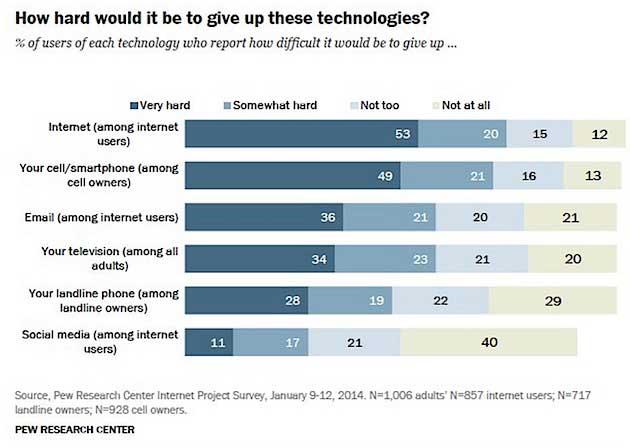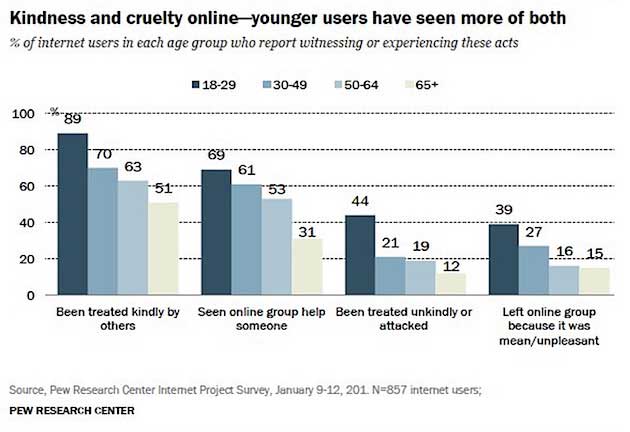Most US Internet users (76%) say the Web has been good for society, just 15% say it's been bad (15%), and 8% say it has been both good and bad, according to a recent report from the Pew Internet & American Life Project.
Moreover, 90% of American Internet users say it has been a good thing for them personally, compared with just 6% who say it has been a bad thing, and 3% who say it has been both good and bad.
Most (67%) also say their online communication with family and friends has generally strengthened those relationships, whereas only 18% say it has generally weakened those relationships.

Below, additional key findings from the survey, which is part of an eight-part series of special reports released by Pew to mark 25th anniversary of the creation of the World Wide Web.
How Hard to Give Up?
- More survey respondents would have a harder time giving up the Internet than television: Just over half of internet users (53%) say the Internet would be very hard to give up, compared with 35% adults who say television would be very hard to give up.
- Among those Internet users who say it would be very hard to give up access, most (61%) say being online is essential for job-related or other reasons. About half as many (30%) say it would be hard to give up Internet access because they simply enjoy being online. An additional 7% say both reasons apply to them: It is essential and enjoyable in equal measure.
- Cell phones are also seen as necessities by many Americans: 49% of cell owners say their phone would be very hard to give up.
- Just 11% of Internet users say social media would be very hard to give up.

Kindness and Unkindness
- 70% of Internet users surveyed say they have been treated kindly by others online. That compares with 25% who say they have been treated unkindly by someone online.
- 76% say the people they've witnessed or encountered online are mostly kind, 13% say people are mostly unkind, and 6% say both kindness and unkindness are present in equal measure.
- 56% have seen an online group come together to help a person or a community solve a problem. That compares with 25% who have left an online group because the interaction became too heated or members were unpleasant to one another.
- Women who use the Internet are more likely than men to have been treated kindly (74% vs. 66%); to have seen an online group come together to help someone or a community solve a problem (63% vs. 50%); and to have left an online group (28% vs. 22%).
- Young adult internet users—those age 18-29—are more likely to have been treated both kindly and unkindly, and to have seen people band together and people attack each other online.
- The oldest Internet users (ages 65+) are the most likely to say people are mostly kind (85%).

About the research: The report was based on data from telephone interviews conducted January 9-12, 2014, among a sample of 1,006 US adults, age 18 and older.




